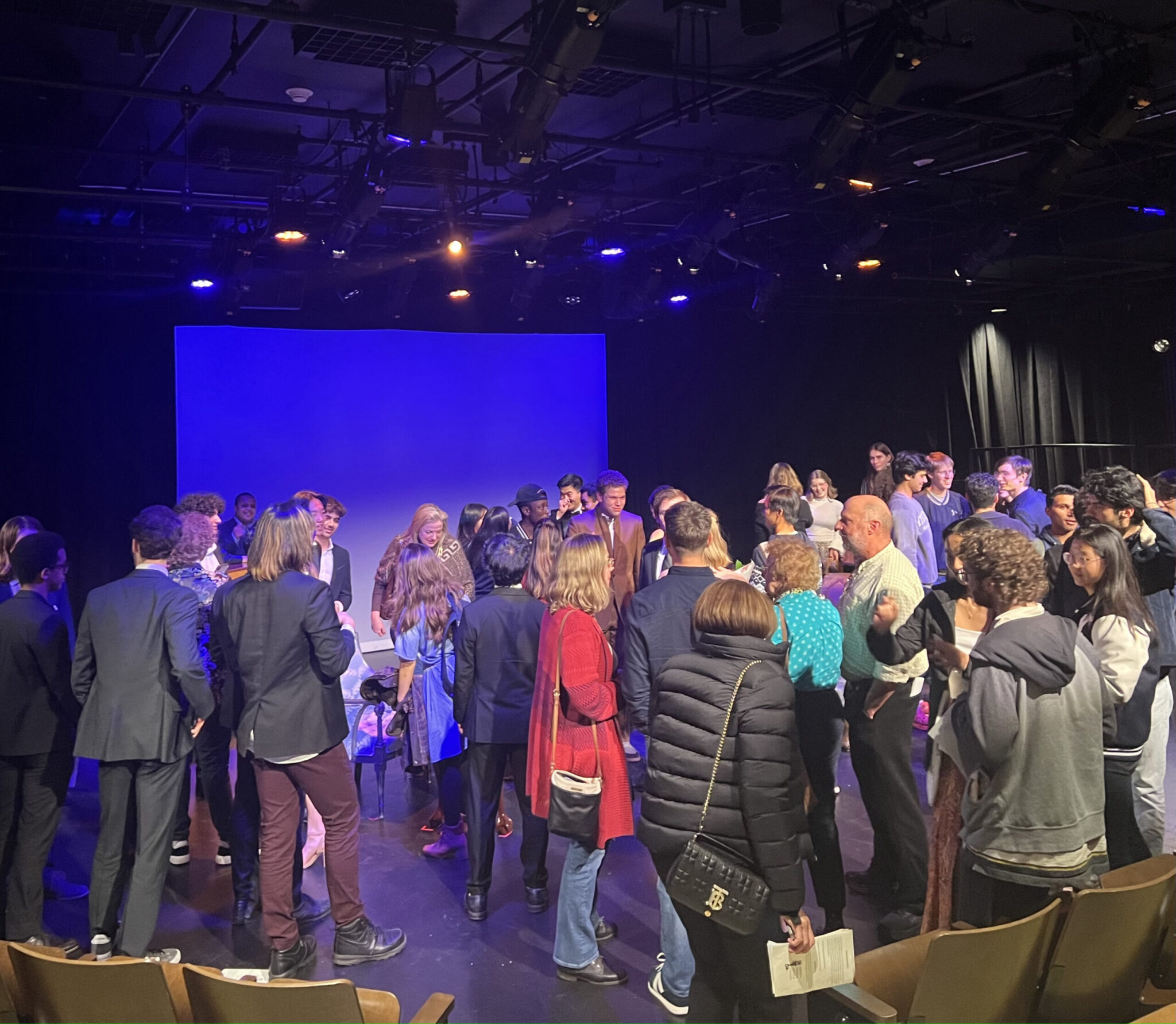Operatic musical ‘Disguise’ stages deception and cunningness
The Opera Theatre of Yale College's musical show, “Disguise,” was performed at the Crescent Underground Theater on Oct. 13 and 14.

Davianna Inirio, Contributing Photographer
The Opera Theatre of Yale College operatic musical, “Disguise: A Night of Scenes” was filled with deceit.
“Disguise” by the OTYC was performed at the Crescent Underground Theater on Oct. 13 and 14, framed around the theme of deception. Composed of several short plotlines that spanned operatic history and ranged from “romantic” to “ridiculous,” the event was filled with musical numbers from operas performed throughout history woven together into 40 minutes of masks and costumes. The OTYC produced the show to reflected the themes of opera found within the canon in time for Halloween while also looking to reach an audience unfamiliar with opera.
“Within opera, there’s disguise everywhere, whether people are constantly putting on masquerade masks or they’re pretending to be a different gender or somebody from a different class,” said Veronica Zimmer ’25, a director of “Disguise” and the managing director of the OTYC.
When putting the show together, Zimmer said she had to choose specific musical performances that would fit the actors’ voices while lending itself well to the theme. Zimmer added that she researched how the works selected reflected theme of disguise has appeared throughout canonical works within opera. With a time limit of about one month to put the show together, finding sheet music that the singers would be able to learn in time was critical, Zimmer said.
“Disguise” had Sophie Dvorak ’25, the show’s musical director, assisting all 14 performers with the opera vocals.
“The musical rehearsals with Sophie were great, I feel like we got a lot accomplished and I also ended up taking my music to my voice teacher and she helped me especially with the Italian diction because that can be very tricky,” said Alliese Bohner ’27 who performed a solo opera, “Deh vieni non tardar” from “Le Nozze di Figaro.”
The costumes in “Disguise” also played a critical role in assisting the performers carry out their acting. Masks and headpieces, such as veils, allowed characters to hold hidden identities. In “Deh vieni non tardar,” Bohner plays Susanna, who is the maid acting the part of the countess as she prepares to marry the count. The veil is symbolic of her being disguised as another woman.
Audience members told the News that they felt the costumes allowed them to have a better understanding of the storylines. While some audience members told the News that they found it difficult to understand the music being performed in Italian and German, the acting helped them to follow along.
“I can’t speak Italian, so I was just kind of going in blind,” said attendee Mara Klein ’27. “But they did a really good job of portraying [the dialogue] with their body language.”
Body language served as a source of translation and a point of connection between the audience and performers while also contributing to the comedic flair of the show.
In “Via, da brava,” performed by Calaway Swanson ’25, Casia Provencal ’26 and James Prud’homme ’26, despite the seriousness of the scene, with Provencal’s exaggerated fainting and Swanson and Prud’homme’s smirky expressions, the audience erupted in laughter.
“My major goal was to try to debunk some misconceptions about opera to show people how fun and how funny opera can be,” Zimmer said.
The Crescent Underground Theater is located in the basement level of Morse College.







